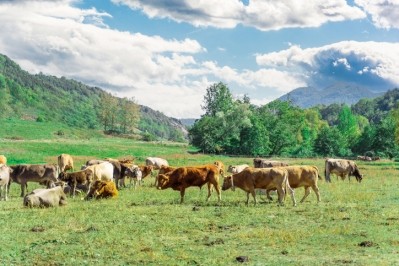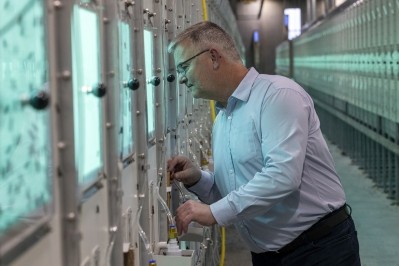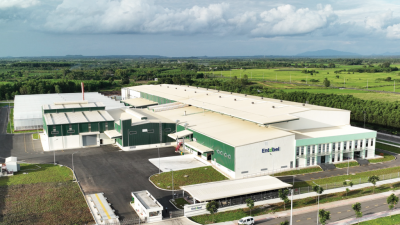Five startups that captured our attention in 2023

The evolving landscape demanded a more measured approach from companies seeking capital, emphasizing the importance of demonstrating substantial progress in achieving growth milestones, irrespective of their valuations. Despite the challenging investment climate, a select group of feed-focused startups successfully navigated these hurdles, and we are spotlighting five noteworthy examples.
Methane blockers
In August, we reported that CH4 Global Inc. had raised $29 million in Series B funding, with the Henderson, Nevada company saying the funding underscores the market demand for safe, viable solutions to reduce methane emissions from ruminant livestock.
The Series B round was led by DCVC, DCVC Bio and Cleveland Avenue, with participation from additional investors, bringing the total raised to date by the US-based startup to $47 million.
Scaling and commercializing methane blockers requires at least three core elements - a product that is profitable enough to be scalable, strong market appeal and access to significant capital for expansion, said Steve Meller, the company's CEO, in October at the Animal AgTech Innovation Summit in Amsterdam in October.
CH4 Global's first production facility is 12 months away from completion, with 100% of production already secured from three commercial partners. It will have the capacity to feed 30-40,000 cattle per day by 2024. The company grows its red algae under controlled conditions on land. "We have spent the last four and a half years working on the life cycle of the plant, processing it, growing conditions, optimization and formulations for different market segments."
The startup's recently announced partnership with the multinational conglomerate Lotte International is another step in the direction of getting its asparagus feed additive into the hands of farmers and food producers worldwide, the CEO said. The purpose of this alliance is to bring CH4's ruminant enteric methane reduction technology to South Korea.
Fermenting bacteria
In November, MicroHarvest inaugurated a pilot plant in Lisbon, accelerating the path to commercialization of its single-cell protein ingredients.
Founded in 2021, the company produces an alternative protein by fermenting bacteria using raw materials derived from agricultural byproducts and drying them into a powder that can then be mixed with other ingredients. The company claims that its process can be completed in a matter of hours and that its product reduces land use by 99% and CO2 emissions by more than 70% compared to beef production. It offers protein solutions that can be used in animal feed, pet food and human food.
MicroHarvest said its new pilot plant marks a critical milestone toward commercialization, allowing for prototype production and testing of production runs, and it has also secured a partnership with a contract manufacturer.
The startup closed an €8.5 million ($9.3 million) Series A funding round in September 2022, led by Astanor Ventures, FoodLabs, Happiness Capital, and Faber; in May this year, it raised €1.5 million from new investment partner Simon Capital, bringing the startup's total funding to over €10 million.
In addition, in April, it was selected as a winner of the 2023 BloombergNEF (BNEF) Pioneers Awards, which recognize early-stage companies working to introduce technologies and products that can move the world toward a net-zero global economy.
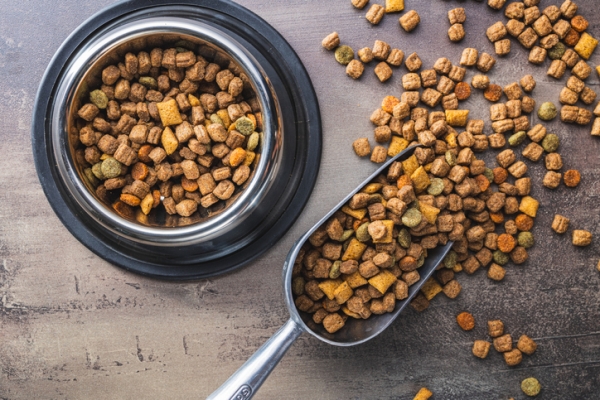
Mycoprotein
In April, we reported that Enifer had raised €11 million (US$12.05 million) in a Series A funding round led by Dutch aquaculture investment fund Aqua-Spark, with participation from Tesi, Valio, Voima Ventures and Nordic Foodtech VC.
The biotech said it would then use the funds to begin scaling up production of its Pekilo mycoprotein powder to thousands of tons per year.
The company was spun off from Finland's VTT Technical Research Centre almost three years ago and is already collaborating with companies in the feed and food industry, such as Skretting, the global aquafeed division of Nutreco, Purina for pet food and Valio for consumer food.
One of the big differences between Enifer's production model and that of some of its competitors is the raw material stream it can leverage, with the ability to tap into "almost free" by-products from industry: "It's also about how we integrate with existing facilities. We will use the existing infrastructure for steam and electricity to [ensure that our process can feasibly supply a sector] such as aqua feed," says Enifer CEO and co-founder Simo Ellilä.
Carbon capture
In August, we heard how a power and microalgae-based decarbonization project won €2.4 million (US$2.62 million) in funding.
Danish algae-based carbon capture and utilization startup, Algiecel, and its partners, secured the financing from Denmark's Energy Technology Development and Demonstration Program (EUDP).
The aim of their energy and microalgae-based decarbonization project, which also involves Novozymes, DTU Chemical Engineering, Knowledge Hub Zealand, and Power to Climate Change (P2CC), is to demonstrate that even relatively insignificant amounts of CO2 from industrial sites can be feasibly converted and used as valuable downstream B2B bio-based products.
Algiecel, founded in 2021 by Henrik Busch-Larsen, co-founder of protein innovator Unibio, aims to turn CO2 emissions into viable business opportunities. Its container-based, high-yield photobioreactors use microalgae organisms to capture CO2 for conversion into high-value commodities such as omega-3 oils and protein for use in feed and food.
The startup is promoting a revenue-sharing business model, with containers deployed near a point of industrial CO2 emission, such as biogas plants.
Busch-Larsen said: "Receiving such a significant grant from the EUDP and having such prestigious partners involved in the project is a very important stamp of approval for our technology and business proposition."
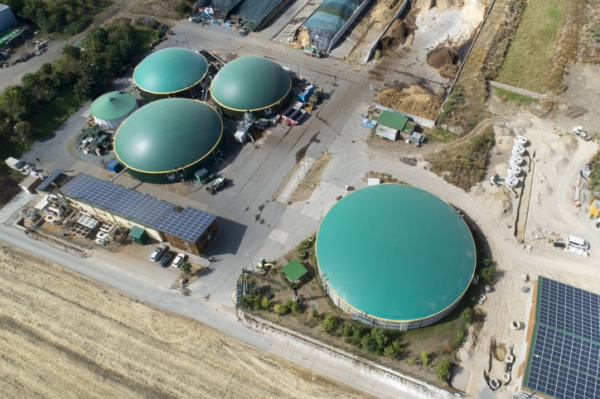
Female founder
Talash Huijbers, founder and CEO of Nairobi, Kenya based InsectiPro, claims that her business strategy has shown that it is possible to combine profitability and sustainability in a practical production model.
The startup produces black soldier fly (BSF) meal for animal feed, as well as frass and chitin. It is also looking to support food production, processing crickets for human consumption and working to make insect consumption more widely accepted.
The young innovator's work is gaining international recognition, with the company securing more than $2 million from the Bill & Melinda Gates Foundation. Earlier this year, she told us the company was preparing a Series A funding round.
For the entrepreneur, one of her main goals is to build a production model that is context-specific, a system that works for Africa, one that fits the local climate and environment. "You can't build something here that relies too much on electricity, for example, because our grid is not reliable, and diesel is very expensive."
Most of the production equipment InsectiPro relies on is manufactured in Kenya. "A lot of our machinery is built locally, and that means it can be serviced locally."

